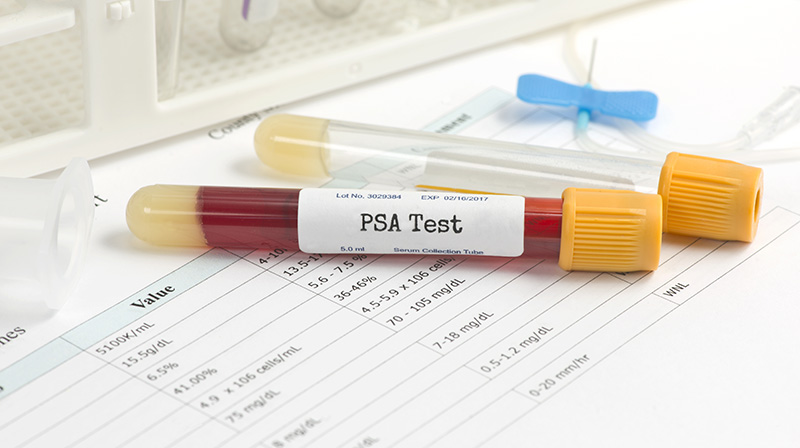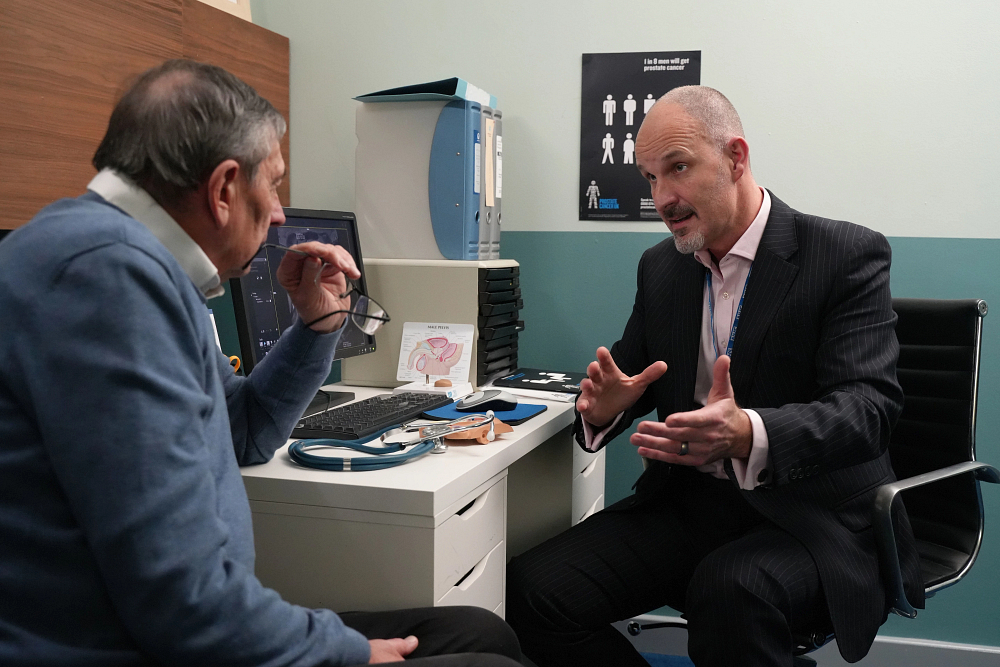Navigating NICE NG12 and PCRMP guidelines on PSA testing
Why have we produced this resource?
An update to NICE NG12 guidelines in 2021 created confusion about the thresholds for referring men who undergo Prostate Specific Antigen (PSA) testing in primary care. PSA thresholds for referral are different depending on whether a man reports symptoms - including lower urinary tract symptoms (LUTS), erectile dysfunction, and/or back/hip pain (symptomatic referral), or not (asymptomatic referral).
Geographical variations in the application of age-specific PSA thresholds have the potential to create inequalities in PSA testing and subsequent referral for suspected prostate cancer diagnostics, particularly for older men i.
GPs need clear, consistent national guidance to identify men at higher risk of clinically significant prostate cancer who would benefit from a 2-week wait referral and to reduce variation in practice across the NHS ii. We have therefore produced this resource to help GPs navigate the two sets of national guidance when it comes to PSA testing.
Download the resource
Navigating NICE NG12 and PCRMP guidelines on PSA testingKey differences between the NICE NG12 and PCRMP guidelines
Two distinct sets of national guidance exist which set out recommendations on the PSA blood test. NICE guidelines describe PSA testing in symptomatic men (where possible symptoms of prostate cancer are present).
The other, Prostate Cancer Risk Management Programme (PCRMP), is a guideline and set of information for GPs and primary care professionals to help them counsel asymptomatic men who ask about PSA testing for prostate cancer.
Both guidelines recommend men are counselled on benefits and harms of the PSA test to help them choose whether or not to have a the test. Under the PCRMP guidance, men who decide to have a PSA test based on recieving balanced information can do so for free on the NHS.
The guidelines recommend different PSA referral thresholds. NICE recommend a PSA threshold of more than 3.5ng/ml for men aged 50-59. PCRMP does not provide a specific PSA threshold, but states "Most men have a PSA level less than 3.0ng/ml", and if a man's PSA is raised "the GP should use their clinical judgement to consider whether referral is appropriate".
When to use this resource
We developed this resource to compliment, and be used alongside, national guidelines. We understand how busy GPs are, and hope this short guide will be useful in supporting you when consulting men about the PSA blood test. For more detail on the guidelines we mention in this document:
Feedback
We want this resource to be as helpful as possible for you and support you when you're consulting patients on the PSA blood test. If you have any thoughts or feedback on how we can improve the document, please take a couple of minutes to email us.
References
iLight A, Burns-Cox N, Maccormick A, John J, McGrath J, Gnanapragasam VJ. The diagnostic impact of UK regional variations in age-specific prostate-specific antigen guidelines. BJU Int. 2021 Sep;128(3):298-300. https://doi.org/10.1111/bju.15484. Epub 2021
Jun 13. PMID: 34014596.
iiMerriel SW, Seggie A, Ahmed H. Diagnosis of prostate cancer in primary care: navigating updated clinical guidance. Br J Gen Pract. 2023 Jan 26;73(727):54-55. doi: 10.3399/bjgp23X731769. PMID: 36702599.



